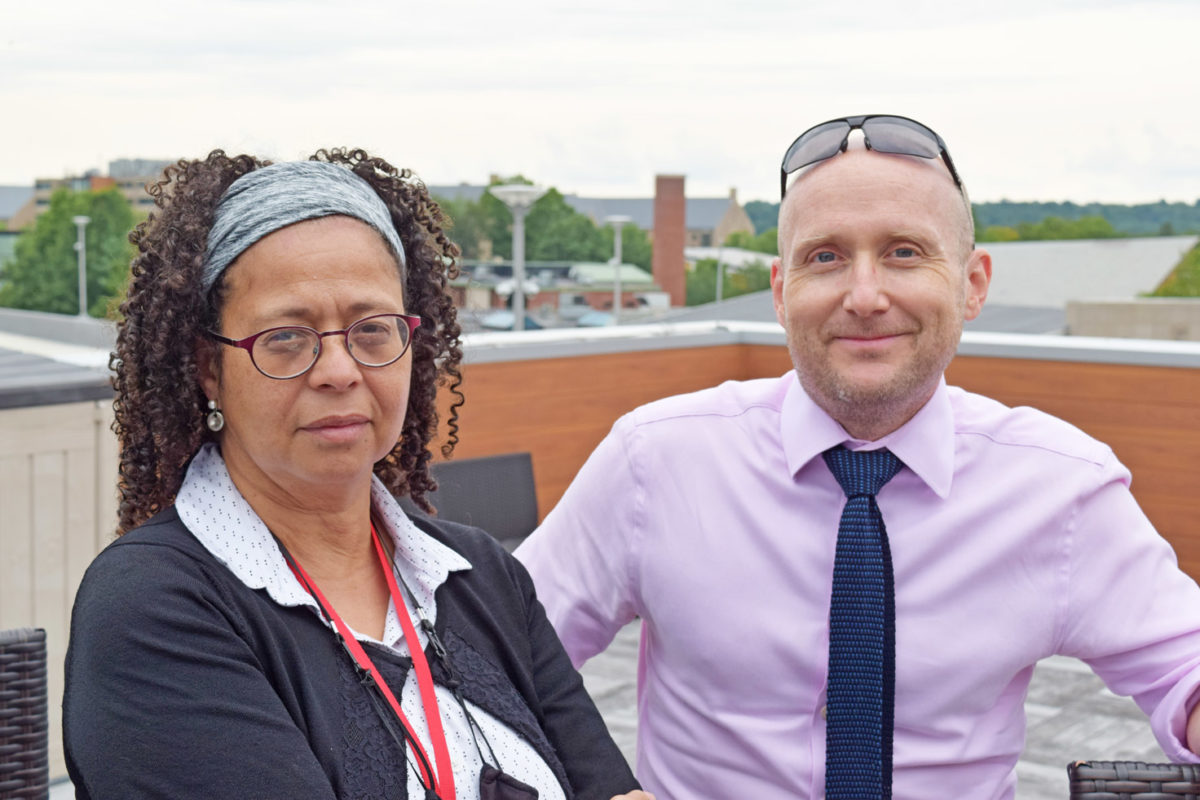Last month, WSHU Public Radio collected a second-place prize from the Public Media Journalists Association for its immigration-focused podcast “Everytown: The Hamptons.”
This was the latest honor for the podcast, which previously received the 2020 Investigative Reporters and Editors (IRE) Award in the “Audio-Small” category and the Fair Media Council”™s Folio Award for Best Immigration Feature.

WSHU is owned and operated by Sacred Heart University in Fairfield and covers Connecticut and Long Island ”” the latter was the location for the seven-episode “Everytown: The Hamptons,” which detailed efforts by a group of residents to pressure the town into closing a motel that was the home to many of the Latin American immigrants in the local workforce.
“A lot of these workers ended up there because it is one of the only affordable housing options that they could afford,” said Charles Lane, who hosted and reported “Everytown: The Hamptons.”
Lane noted the problem for many Hamptonites was a financial burden that some homeowners found unfair.
“There were more students that were entering the school system that spoke Spanish and needed English as a second language programs and that cost money,” Lane continued, noting that the Hamptons”™ schools were financed primarily through property taxes.
“The families with the children who spoke mostly Spanish lived in this motel where they were paying rent, but not property taxes, so they weren”™t directly paying into the school system. And people were getting upset about that ”” they became this group of people who were counting children at one point and being very observant about where the children were being dropped off.”
Lane observed that efforts by Latina immigrants with children to find housing within the area were burdened by landlords who would not rent to households with youngsters.
“I think this is one of the beauties of radio that we can actually take our microphone to a physical location and see how these big national unresolved problems play out in every town,” he said.
Lane stressed that the podcast did not seek to villainize the school district or the town leadership, acknowledging “they have obligations that they have to meet for all the taxpayers.”
Ann Lopez, a WSHU producer who edited the podcast, stressed that “Everytown: The Hamptons” worked because all sides in the issue were given a chance to voice their opinions and frustrations.
“Charles was very good at being able to reach out to those people who were part of that campaign and getting their perspective on the issue,” she said.
Production took eight months to complete, with Max Wasserman serving as the podcast”™s producer and a pair of journalism students, Gabby Pardo and James Bowen, fact-checking its contents.
WSHU distributed “Everytown: The Hamptons” through the Apple Podcast, Spotify, Google Podcast and Stitcher platforms, but the full seven-episode series did not run on the station.
“I also produce our talk show and we had Charles on to talk about the podcast,” Lopez said.
Lane reported that the podcast has already recorded 500,000 downloads, which awed him since “we”™re a relatively small station.” And while a few of the individuals trying to disrupt the immigrants”™ residence gave “Everytown: The Hamptons” one-star reviews on Apple Podcast, he received mostly positive feedback from the people he interviewed.
“Interestingly, the daughter of the town supervisor emailed me to tell me what a great story this was ”” basically throwing her father under the bus,” he laughed.
Next on the production”™s team agenda is a podcast focused on local policing. Lane stated he was uncertain how to approach the subject, but he insisted he wanted to bring a national debate closer to home so “the listener can really identify with it in their community.”
The seven-episode podcast can be heard online at http://everytownpodcast.org/.


















